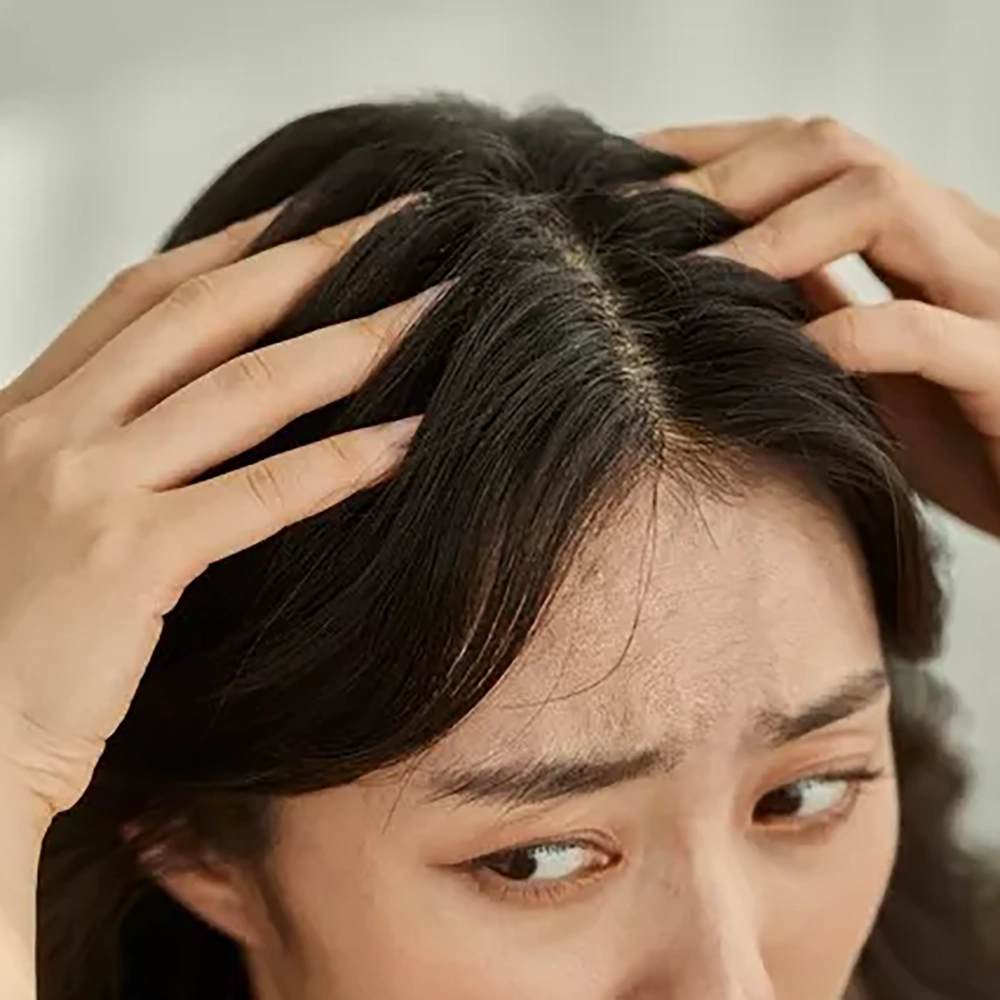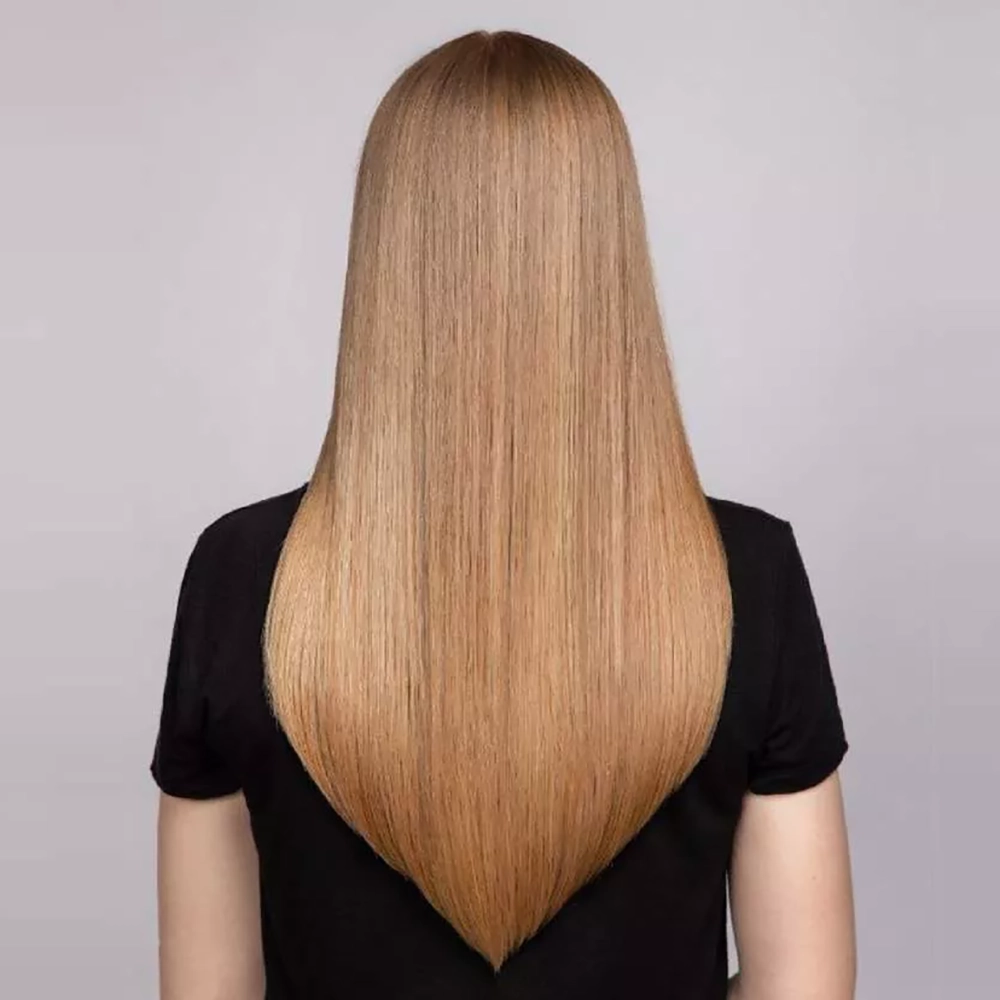Understanding the sensation of hair pain
Understanding the Sensation of Hair Pain
Have you ever experienced a sharp pain in your scalp when you pull your hair tightly? Or how about when you brush your hair, and it feels extra sensitive? These sensations are commonly known as hair pain, and they can range from mild discomfort to intense throbbing. While we often associate pain with physical injury, hair pain is a unique sensation that is not well understood. In this blog post, we will delve into the fascinating world of hair pain and explore its causes, the role of scalp sensitivity, common conditions that cause hair pain, and tips to alleviate and prevent future episodes of hair pain.
List of Content:
- Understanding the Sensation of Hair Pain
- The Causes of Hair Pain
- The Role of Scalp Sensitivity
- Common Conditions That Cause Hair Pain
- Tips to Alleviate Hair Pain
- Seeking Professional Help for Persistent Hair Pain
- Preventing Future Episodes of Hair Pain
Table: Common Conditions That Cause Hair Pain
| Condition | Description |
|---|---|
| Tight Hairstyles | Hairstyles that pull the hair tightly can put strain on the scalp, leading to hair pain. |
| Scalp Infections | Infections such as folliculitis or ringworm can cause inflammation and pain in the scalp. |
| Trichodynia | A condition characterized by chronic hair pain, often without any underlying physical cause. |
| Scalp Psoriasis | A chronic skin condition that causes redness, itching, and pain on the scalp. |
Causes of hair pain
When it comes to hair pain, there are several potential causes that can lead to this uncomfortable sensation. Understanding the underlying factors that contribute to hair pain can help individuals find appropriate relief and treatment. Whether it’s a result of scalp sensitivity, common conditions, or external factors, identifying the causes of hair pain is essential for managing and preventing future episodes. Below, we explore some of the most common causes of hair pain and discuss ways to alleviate discomfort.
1. Scalp sensitivity: One of the primary causes of hair pain is a sensitive scalp. Some individuals have highly sensitive nerve endings in their scalp, which can make them more susceptible to feeling pain or discomfort. This sensitivity can be genetic or developed over time due to specific factors such as chemical treatments, heat styling, or excessive brushing. It is important to be gentle with the scalp and avoid actions that may exacerbate sensitivity.
2. Common scalp conditions: Certain scalp conditions can also contribute to hair pain. Conditions such as scalp psoriasis, seborrheic dermatitis, or folliculitis can cause inflammation and irritation of the scalp, leading to pain and discomfort. These conditions often result in itching, redness, and flaking, which can further aggravate the hair follicles and cause pain. Seeking professional help and treatment for these conditions is essential for effective management.
3. External factors: Aside from scalp sensitivity and common scalp conditions, external factors can also contribute to hair pain. For example, wearing excessively tight hairstyles like braids, ponytails, or extensions can put tension on the scalp and hair follicles, leading to pain. Additionally, using hair accessories that are too tight or brushing the hair too forcefully can also cause discomfort. Being mindful of these external factors and making necessary adjustments can significantly alleviate hair pain.
By understanding the causes of hair pain, individuals can take appropriate steps to manage and alleviate discomfort. Whether it’s addressing scalp sensitivity, seeking professional help for scalp conditions, or making adjustments to daily hair care routines, taking proactive measures can significantly improve the overall scalp health and reduce the occurrence of hair pain. Remember, a healthy and pain-free scalp is essential for promoting healthy hair growth and maintaining overall hair health.
The role of scalp sensitivity
Scalp sensitivity plays a crucial role in the overall health and well-being of our hair and scalp. When our scalp becomes sensitive, it can lead to various discomforts like itching, burning, and even hair pain. Understanding the role of scalp sensitivity is important in order to address these concerns and maintain a healthy scalp. In this blog post, we will explore the importance of scalp sensitivity and how it impacts the health of our hair.
Scalp sensitivity can be caused by a number of factors, such as allergies, hormonal changes, and even certain hair care products. When our scalp is sensitive, it tends to react to external stimuli more easily, leading to sensations of pain or discomfort. This heightened sensitivity can make simple activities like brushing or washing our hair a painful experience. It is important to identify the underlying causes of scalp sensitivity in order to find appropriate solutions for alleviating hair pain.
There are several common conditions that can cause hair pain due to scalp sensitivity. One such condition is scalp inflammation, which can be caused by conditions like scalp psoriasis or seborrheic dermatitis. These inflammatory conditions can lead to redness, itching, and pain in the scalp. Additionally, conditions like trichodynia (hair pain syndrome) or neuropathic pain can also result in hair pain due to increased scalp sensitivity.
- Hair pain – Sensations of pain or discomfort in the scalp
- Scalp sensitivity – Heightened sensitivity of the scalp to external stimuli
- Scalp inflammation – Inflammatory conditions that cause redness, itching, and pain in the scalp
- Scalp psoriasis – A chronic autoimmune condition that causes thick, scaly patches on the scalp
- Seborrheic dermatitis – A common skin condition that causes redness, itching, and flaking of the scalp
- Trichodynia – Hair pain syndrome characterized by burning or tingling sensations in the scalp
- Neuropathic pain – Chronic pain caused by damage or dysfunction of the nervous system
In order to alleviate hair pain caused by scalp sensitivity, it is important to seek professional help. A dermatologist or a trichologist can help diagnose the underlying cause of scalp sensitivity and provide appropriate treatment options. They may recommend medicated shampoos, topical creams, or oral medications to reduce inflammation and relieve scalp discomfort. Additionally, they can provide guidance on suitable hair care practices and products to minimize scalp irritation.
Preventing future episodes of hair pain due to scalp sensitivity involves adopting a gentle hair care routine. Avoiding harsh chemicals, excessive heat styling, and tight hairstyles can help prevent scalp irritation and minimize hair pain. It is also beneficial to use hair care products specifically formulated for sensitive scalps. These products are typically free of irritants and contain soothing ingredients that can help calm and nourish the scalp.
| Key Takeaways: |
|---|
| 1. Scalp sensitivity plays a significant role in hair pain and overall scalp health. |
| 2. Identifying the causes of scalp sensitivity is important to find suitable solutions. |
| 3. Conditions like scalp inflammation or neuropathic pain can cause hair pain. |
| 4. Seeking professional help from a dermatologist or trichologist is recommended for persistent hair pain. |
| 5. Preventing future episodes of hair pain involves adopting a gentle hair care routine and using scalp-friendly products. |
Common conditions that cause hair pain
Experiencing pain in the hair can be a perplexing and uncomfortable sensation. While hair pain may seem unusual, it can actually be quite common and is often a symptom of an underlying condition. Understanding the various conditions that can cause hair pain is crucial in finding relief and preventing further discomfort. In this blog post, we will explore some of the most common conditions that can lead to hair pain and discuss tips to alleviate the discomfort.
One of the primary causes of hair pain is a condition known as trichodynia. This condition is characterized by a burning or stinging pain in the scalp, which can extend to the hair follicles. Trichodynia is often associated with underlying conditions like scalp psoriasis, seborrheic dermatitis, or hair loss disorders. The exact cause of trichodynia is still unknown, but it is believed to be related to nerve sensitivity in the scalp.
Another common condition that can cause hair pain is called scalp neuritis. This condition occurs when the nerves in the scalp become inflamed, resulting in a sharp, shooting pain. Scalp neuritis can be caused by a variety of factors, including scalp infections, trauma, or medical conditions like fibromyalgia or multiple sclerosis. Seeking medical help for proper diagnosis and treatment is essential in managing scalp neuritis and relieving hair pain.
| Common Conditions | Symptoms |
|---|---|
| Scalp psoriasis | Red, scaly patches on the scalp, itching, hair loss |
| Seborrheic dermatitis | Flaky, itchy scalp, redness, greasy patches |
| Hair loss disorders | Thinning of hair, bald patches |
| Scalp infections | Swelling, pain, redness, discharge |
| Fibromyalgia | Muscle pain, fatigue, stiffness |
| Multiple sclerosis | Difficulty walking, numbness, tingling |
It is important to note that hair pain can also be caused by other factors, such as excessive hair pulling or tight hairstyles. These actions can strain the hair follicles and lead to discomfort. Additionally, certain medical treatments like chemotherapy can cause hair pain as a side effect. If you are experiencing persistent hair pain or are unsure of the underlying cause, it is always best to consult with a medical professional for an accurate diagnosis and appropriate treatment.
When it comes to alleviating hair pain, there are several tips and remedies that may help. Avoiding harsh hair products, using a gentle shampoo and conditioner, and maintaining a healthy scalp hygiene routine can all contribute to reducing hair pain. Additionally, practicing stress-reducing techniques, such as meditation or yoga, can help manage conditions like trichodynia or scalp neuritis that may be exacerbated by stress.
In conclusion, hair pain can be caused by various underlying conditions, such as trichodynia or scalp neuritis. It is important to identify the specific cause to effectively manage and alleviate the discomfort. By understanding the common conditions that can contribute to hair pain and following proper treatment guidelines, individuals can find relief and prevent future episodes of hair pain.
Tips to alleviate hair pain
Are you experiencing hair pain and looking for some relief? Hair pain can be a discomforting and distressing sensation. It may feel like a tingling, itching, burning, or even a stabbing pain on your scalp. If you are tired of dealing with hair pain and want to find ways to alleviate it, you’ve come to the right place. In this blog post, we will explore some effective tips to help you relieve hair pain and improve your scalp’s well-being.
Listed below are some practical tips to alleviate hair pain:
- Maintain good scalp hygiene: Keeping your scalp clean and healthy is essential to reduce hair pain. Regularly wash your hair with a mild shampoo, making sure to cleanse your scalp gently and thoroughly.
- Avoid hot water and harsh hair products: Hot water and harsh hair products can irritate your scalp and contribute to hair pain. Opt for lukewarm water when washing your hair and choose gentle, sulfate-free hair care products.
- Moisturize your scalp: Dryness can exacerbate hair pain. Apply a moisturizing scalp oil or natural oil, such as coconut oil or jojoba oil, to nourish and hydrate your scalp regularly. Massage the oil gently into your scalp to promote relaxation and relieve pain.
- Avoid tight hairstyles: Pulling your hair tightly into braids, ponytails, or buns can strain your scalp and cause pain. Opt for loose hairstyles that do not put excessive pressure on your scalp.
- Use a wide-toothed comb or a brush with soft bristles: Choose hairbrushes and combs with wide teeth or soft bristles to minimize scalp irritation and pain. These tools are gentler on your scalp and reduce the risk of hair breakage.
- Avoid excessive heat and styling: Excessive heat from hair dryers, curling irons, and straighteners can damage your hair and scalp, leading to pain. Limit the use of heat styling tools and opt for heat protectant products when necessary.
- Practice stress-relieving techniques: Stress can contribute to hair pain and scalp sensitivity. Engage in stress-relieving activities like deep breathing exercises, meditation, yoga, or any other hobbies that help you relax and unwind.
- Consult a dermatologist: If your hair pain persists or worsens, it is essential to seek professional help. A dermatologist can diagnose any underlying conditions causing hair pain and provide targeted treatment options.
Remember, everyone’s experience with hair pain may vary, and these tips may not work for everyone. It is important to listen to your body and find the approaches that provide the most relief for you. By incorporating these tips into your hair care routine and making necessary lifestyle adjustments, you can alleviate hair pain and improve the overall health of your scalp.
| Benefits of Following These Tips | Drawbacks of Ignoring Hair Pain |
|---|---|
|
|
Seeking professional help for persistent hair pain
If you are experiencing persistent hair pain, it is important to seek professional help. Persistent hair pain can be a sign of an underlying condition that requires medical attention. It is important to consult a dermatologist or a trichologist who specializes in hair and scalp disorders. They will be able to assess your condition, diagnose the cause of your hair pain, and provide appropriate treatment options.
There are several reasons why seeking professional help is crucial for persistent hair pain. Firstly, a trained professional will be able to accurately diagnose the cause of your hair pain. They will take into consideration your medical history, conduct a thorough examination of your scalp and hair, and may even order additional tests if necessary. This will help determine whether your hair pain is due to a specific condition such as trichodynia, scalp psoriasis, or scalp folliculitis.
Once the cause of your hair pain has been identified, a professional will be able to recommend appropriate treatment options. This may include topical medications, oral medications, or other therapies depending on the underlying condition. They will also be able to provide guidance on how to properly care for your hair and scalp to alleviate pain and prevent further episodes. It is important to follow their advice and treatment plan for optimal results.
In addition to providing treatment, seeking professional help also offers support and guidance throughout your hair pain journey. A specialist will be able to address any concerns or questions you may have, and offer reassurance and understanding. They can also provide valuable resources and recommendations for managing hair pain at home, such as using gentle hair care products, avoiding harsh chemicals, and practicing stress management techniques.
In conclusion, if you are experiencing persistent hair pain, it is highly recommended to seek professional help from a dermatologist or trichologist. They have the expertise to accurately diagnose the cause of your hair pain and provide appropriate treatment options. Seeking professional help not only ensures proper care and management of your condition, but also offers support and guidance throughout your journey to alleviate hair pain and improve your overall hair and scalp health.
Preventing future episodes of hair pain
Hair pain can be an uncomfortable and distressing sensation that many people experience. Whether it’s a dull ache, a sharp twinge, or a tingling feeling, hair pain can disrupt our daily lives and cause significant discomfort. Fortunately, there are steps we can take to prevent future episodes of hair pain and minimize its impact on our overall well-being.
Understanding the sensation of hair pain
Before we delve into prevention methods, let’s first understand what causes hair pain. This phenomenon, also known as trichodynia, occurs when the hair follicles or scalp become hypersensitive. Factors such as inflammation, nerve irritation, or scalp tension can contribute to this heightened sensitivity. Additionally, certain medical conditions, such as scalp infections or skin disorders, can also trigger hair pain. It’s important to recognize these underlying causes in order to effectively prevent future episodes.
The role of scalp sensitivity
Scalp sensitivity plays a crucial role in hair pain. When our scalp becomes sensitized, even the slightest touch or movement can send sharp waves of discomfort through our hair follicles. This sensitivity can be influenced by various external and internal factors, including stress, hormonal imbalances, and certain medications. Understanding the triggers behind scalp sensitivity is essential in preventing hair pain from occurring or worsening.
Common conditions that cause hair pain
| Condition | Symptoms |
|---|---|
| Scalp psoriasis | Red, scaly patches on the scalp, itching, burning sensation |
| Traction alopecia | Thinning hair, receding hairline, scalp tenderness |
| Scalp folliculitis | Inflamed hair follicles, pustules, itching, tenderness |
| Seborrheic dermatitis | Flaky, greasy patches on the scalp, itching, redness |
| Trichotillomania | Compulsive hair pulling, hair loss, scalp sensitivity |
These are just a few examples of common conditions that can cause hair pain. By identifying and addressing these conditions, we can effectively prevent future episodes of discomfort.
Tips to alleviate hair pain
- Keep your scalp clean and free from excess oils or products that may irritate the skin.
- Avoid tight hairstyles or excessive pulling on the hair, as this can lead to scalp sensitivity.
- Use gentle, non-irritating hair care products that are suitable for your scalp type.
- Manage stress levels through relaxation techniques or activities that promote mental well-being.
- Protect your scalp from harsh environmental conditions, such as extreme temperatures or UV rays.
- Seek professional help if you notice persistent or worsening hair pain, as it may indicate an underlying condition that requires treatment.
By following these preventive measures and incorporating them into your daily routine, you can significantly reduce the risk of experiencing hair pain in the future.


























